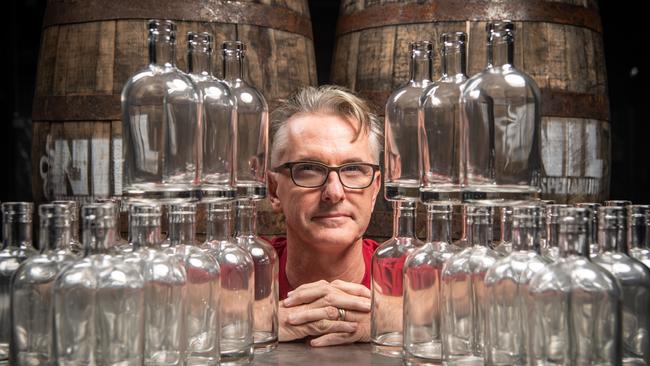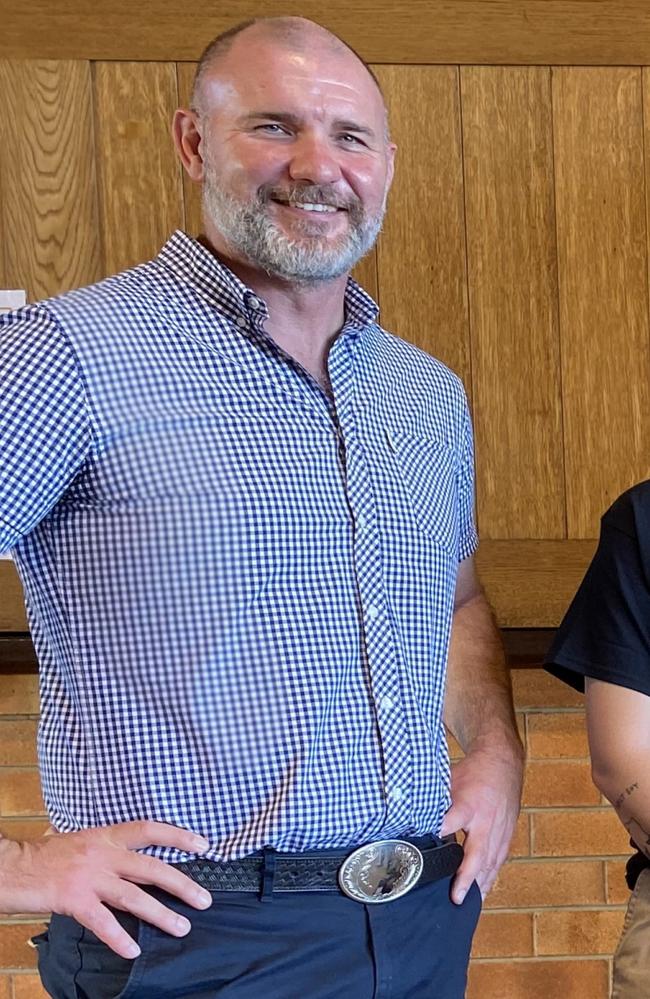Qld distiller rakes in $2m as others affected by bottle, barrel shortage
A global shortage of vital equipment has left many brewers struggling to keep their heads above water, but one Queensland distiller is bucking the trend with unprecedented growth.
QLD News
Don't miss out on the headlines from QLD News. Followed categories will be added to My News.
A global glass and oak barrel shortage has sparked a major business boom for boutique Queensland distillers as big retailers turn to smaller producers to fill empty shelves and quench customer demand.
The supply struggle fuelled by the pandemic, along with a surge in the popularity of craft beers and spirits produced by local brewers and distillers, is being blamed for the shortage.
Covid-19 workplace disruptions mean raw materials needed to produce bottles and barrels have become more expensive and harder to source, leaving the spirits and wine industry in the middle of a perfect storm that only a small number of distillers are successfully weathering.
The Sunshine Coast’s Sunshine & Sons are among those reaping the benefits and are set to see their 2022 production to double that of 2021 – raking in an extra $2m.
They will likely double their production again in 2023.
“Combined with workforce shortages, higher transportation and ingredient costs, inflation and a delayed supply chain, distillers are facing a spirited fight to get product out at all and especially at the right cost,” Matt Hobson, the company’s founder and chief imagineer, said.
The Australian Distillers Association (ADA) said supply shortages for barrels and bottles had caused a noticeable impact on production and sales for the industry.

“We are certainly seeing those problems coming up,” ADA chief executive Paul McLeay said.
“Most of those barrel and bottle products are imported, and of course, there have been problems in those overseas manufacturing markets because of the pandemic.
“Part of it is reflecting the market as well – like most industries, we knew that this situation would come but we didn’t expect it to this extent.”
And while the cost of production has increased, the retail price paid in bottle shops for our favourite brews has remained mostly unchanged.
Mr Hobson said businesses that were easily able to absorb the additional costs of production in their profit margins were forcing others to follow suit in a bid to remain competitive.
“For an $80 bottle of gin, some of our competitors would probably be selling that for $5 or $10 more if they could afford to, but instead they’ve had to shrink their margins and cop that extra cost because others have done the same,” Mr Hobson said.
The ADA said there was little that could be done to amend the situation because it had mostly been caused by “market forces”.

“We’re not advocating for any specific action from governments at the moment as there isn’t much that could be done to fix those problems now,” Mr McLeay said.
Sitting pretty with an assured supply of bottles and barrels, thanks to contracts signed before the shortages began, Sunshine & Sons is now gearing up for a dramatic production boost.
Mr Hobson said “the more specific your bottle, the harder it is to source, and many spirit makers use customised bottles for their various brands”.
“When we started, we embraced sustainability in every aspect of our packaging,” he said.
“One bottle design is more environmentally sustainable, cheaper, minimises wastage, and simplifies every aspect of our supply chain including the corks and boxes.
“It turned out to be one of the greatest decisions we’ve ever made because we have bottles when others don’t.”
Mr Hobson said many bottle shops would have baulked at the idea of stocking a small, local producer this time last year, but now “they can’t wait to see us, because we have stock and are able to keep pace with forecast increases in demand”.
The original release of Sunshine & Sons Nil Desperandum rum sold out at $180 a bottle, and the distillery plans to produce more to help fill the world’s demand for Australian rum.
“You’re going to see a lot more Sunshine & Sons on shelves,” Mr Hobson said.




